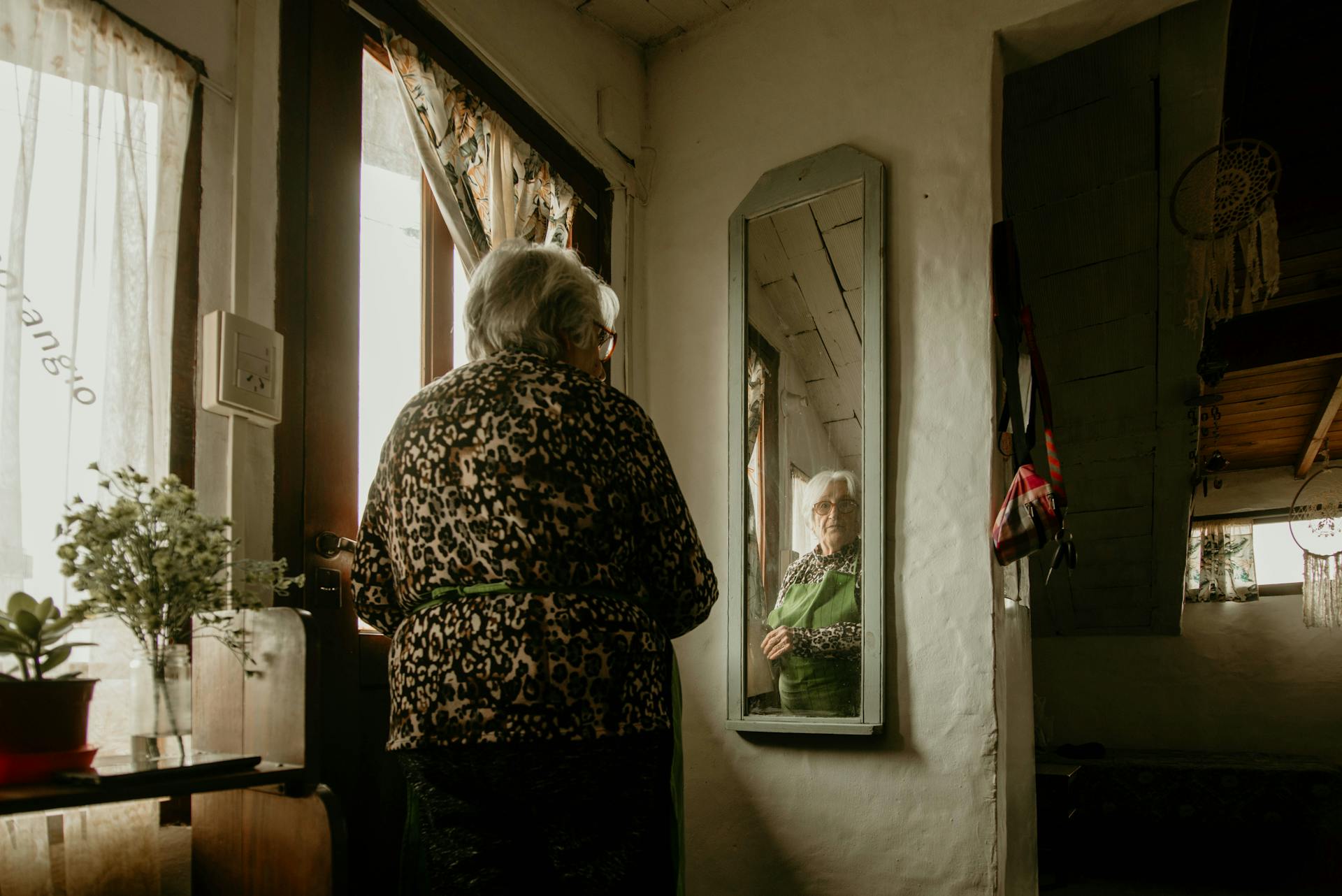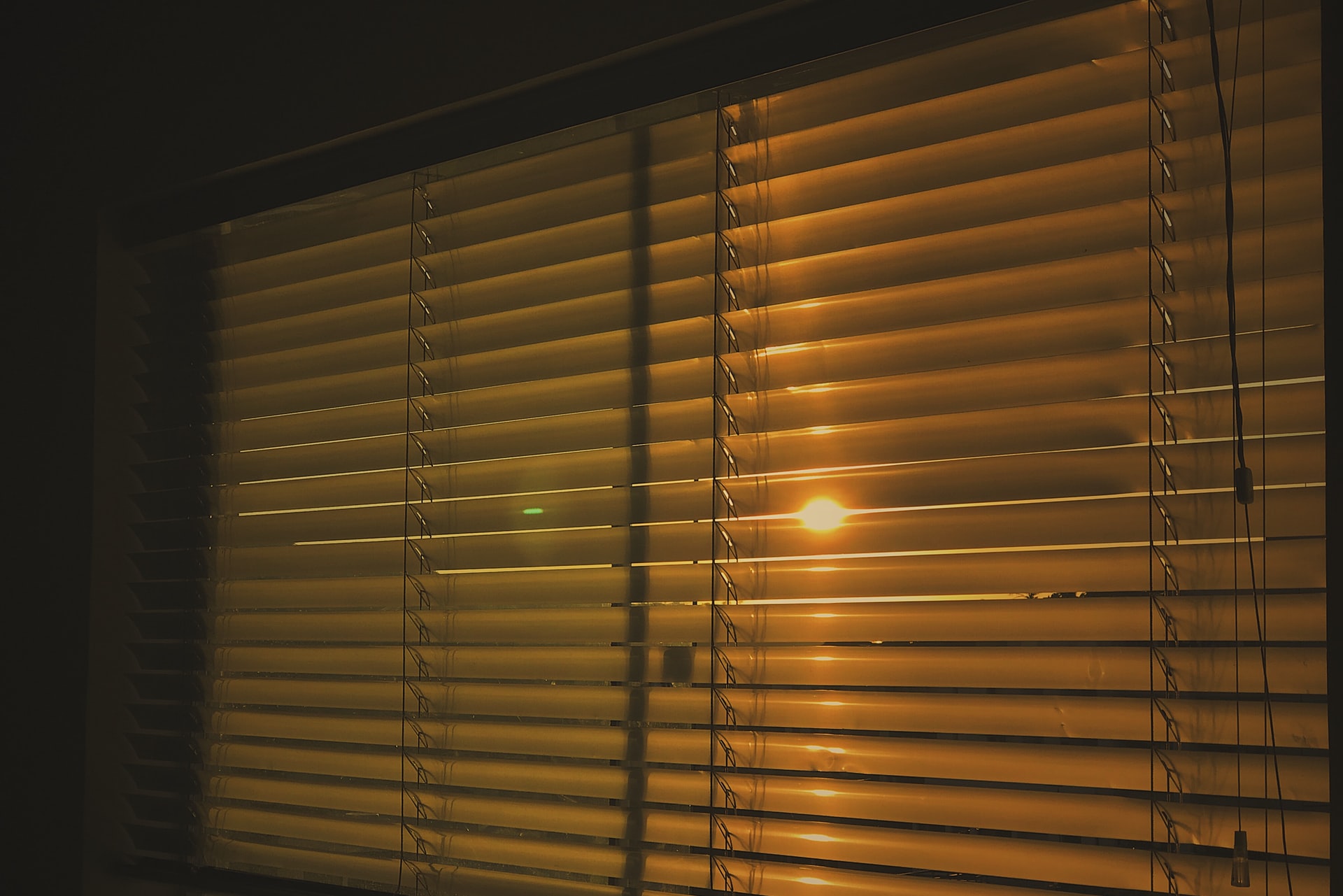
My grandmother Carmen ("la Tata" to the whole family) died almost a decade ago, a few months after her ninety-twoth birthday. She had a truly long life full of experiences: she survived the Civil War; she took care of her eleven brothers; she worked as a washerwoman and cleaner during her youth; she married and had four children - including my mother - and eventually ten grandchildren; she won the lottery twice and never went out on the street with her lips unpainted. Most of her life she belonged to the working middle class, which was more than enough to support her hobbies. Her day-to-day life consisted of doing housework and raising his children. Her tastes were simple. She loved gardening, sewing, taking care of animals, playing Parcheesi and cards, and when television came into every home, she became a soap opera fan. I was born when she was sixty. Throughout the time I knew her, she always seemed to me to be a very active woman. At seventy she was able to walk two and a half kilometres to come from her house to the village where we lived. At eighty she was still cooking the Sunday "cocido" for the ten or twelve of us who came together. She waited patiently for the summer so that she could rent a little house on the beach and smear herself with the mud from the Mar Menor. My Tata was never bored.
Her health was good, almost always; she had problems with varicose veins and circulation (her legs looked to me like two little red arches about to break). Once she was pulled in the market and, because she didn't let go of her bag, she fell to the ground, breaking both her kneecaps. Even in the weeks when she was in bed with her legs in a cast, she didn't have time to get bored (of course, absolute rest was only a prescription). Although she has needed a cane ever since to get around, that doesn't stop her from continuing - at a slower pace - with his routines. And suddenly everything fell into place. Around the age of eighty-four, she suffered a thrombosis that paralyzed her for half his body. She recovered, but had to use walkers from that moment on. Over the next few years she lost some mobility, but she was able to stand on her own. However, by the time she was about to turn eighty-eight, my grandfather Justo ("the Cuqui"), then ninety-two years old-yes, the longevity of my maternal family is legendary-began to require special care. He was suffering from what is known as "the gout" and slowly faded away until he barely ate or moved. Making the decision to change my grandparents' lives completely and place them in a nursing home was one of the hardest moments in my family's history. But the worst was yet to come.
My grandparents hated the idea from the first moment (we all did). It took blood and sweat to convince them that it was the best option, given the personal and financial circumstances. He died just three months after his transfer. By then, he had already lost his two great passions, which were dipping the mouthpieces of cigars in cognac and spending the dead hours looking at the street from the balcony of the apartment. My grandfather Cuqui was never bored either. He was a man of few words who could sit in the same place all day long, closed in on himself and entertained by his own thoughts (I always thought that was a side effect of World War II). At the height of his powers, what bothered my grandfather most about his new life was having to keep to the schedule of activities proposed by the center and having to bathe every day. He complained a lot, until one day the nurses put him to bed and he slept forever. A few months later, my grandmother suffered a second thrombosis that relegated her to a wheelchair until the end of her days and severely affected her cognitive functions.
The most vivid memories I have of her so far are very touching. I remember waiting for the moment when I received a hundred-peseta coin from her black purse and thanking her in the same way, telling her "Leave it out, Tata, it's not necessary". And also how I would ask my older sister "why did you wake up so early", when she would arrive at the beach house at five in the morning after a night of partying. I remember that, already being in the residence, she always repeated "you are going to be a teacher" (and that's how it was). My Tata was forgetting these things. After the second thrombosis a part of her returned to her youth, when her mother was still alive and she had to take care of the little ones in the house. We visited her weekly and that made her very happy, because not all her classmates had the same luck. If there was one thing that marked me in those years, more so than seeing my grandmother in that state, it was the widespread boredom within the walls of the residence.
The centre where my grandparents spent the last part of their lives was for elderly people with varying degrees of dependency. It was private, but in cases of severe dependency, such as my grandfather's, part of the expenses were borne by the state. In addition to having nurses, psychologists and rehabilitation experts on call around the clock, the management promoted a whole range of activities to pass the time: they organized excursions from time to time; they had a hairdresser come to the premises a few days a week; they held bingo games, craft workshops... My mother denies this, but my Tata complained of boredom. I know this because it was the reason I decided to specialize in this phenomenon and, specifically, the one that motivated me to study boredom in nursing homes. She was one of the most involved in these activities, but I remember her frustration when they sometimes tried to encourage her to do things that she described as "for little kids. The gesture of the others gave a similar feeling, which explained why they spent most of the day sitting in the TV room.
In all these years, I have not been able to stop thinking about whether they would ever, in that facility or in others, ask the inmates what they wanted to do, how they preferred to spend their time. I have always been convinced that the elders have something to say about this, but they are rarely encouraged to speak out. I do not know if it is a question of comfort, tradition or incapacity (either for economic reasons or due to the limitations of the facilities), but in the time that I have been investigating the matter I have verified that, at least in Spain, few residences for the elderly leave this restricted entertainment proposal. I have not set foot in one of these centres any more, but I know that this is still an area where there is still a lot of work to be done. In some ways, they are very similar to the "senior citizens clubs" that offer their members a weekly bingo and the free daily newspaper. I have had the opportunity to talk to some of the members of these clubs and they were surprised when someone asked them what they would prefer the money from their annual subscriptions to be spent on - and they have many ideas that could easily be implemented! The difference between them and the residents of nursing homes is that, in the case of the latter, they depend - it is worthwhile - entirely on the possibilities offered to them by the management. I am convinced that if my grandmother had been asked, she would have loved to spend a few hours a day gardening instead of painting pictures. Others will prefer to chat with young people. Some will want to interact with children or animals... or do anything that allows them to share with the world all they have to give of themselves. In other parts of the world this has become possible.
The amount of studies that have been done to date on boredom in retirement homes is quite limited in the Spanish geographical context. For some reason that I do not understand, boredom is not considered a risk factor and our intervention models have not developed boredom prevention plans applicable to centres that take in elderly dependents. It seems to me that this is a gap that needs to be filled not only because boredom can be an impediment to ageing with dignity, but also because it carries with it the correlation of other risk factors such as depression or anxiety and even the worsening of certain physical and cognitive conditions.
My life's dream is to devote myself to ensuring that the boredom of elderly dependents living in residential homes is given the attention it deserves and that protocols are implemented to meet the residents' demands in a personalised way. My intention is to lead the project that will carry out this initiative, importing some ideas with which I had the opportunity to become familiar during my research stay at Harvard University. If you are interested in knowing what I have in mind to improve, in terms of boredom, the quality of life of the elderly who experience these particular circumstances, read on to my next posts in which I will break down the crucial points of this path that we must follow to guarantee the physical and mental well-being of the residents in a situation of dependency.


